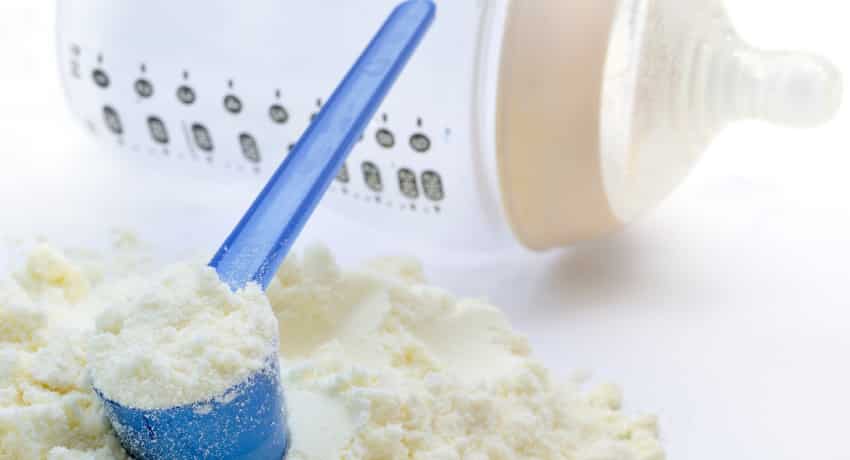Stay calm. Two simple words—but hopefully powerful ones as baby formula shortages dominate the headlines. In part one of our series Got milk?, we took a look at breastfeeding encouragement and support during the shortage. In part two, we tackle what’s safe, what’s not, and how to navigate the uncertainty.
Who is a great source for truth? Your pediatrician. This is the perfect time to send a message on a secure patient portal, write down questions and bring them to your next appointment, or call your baby’s physician. While the photos and videos of store shelves running low on baby formula is troubling, pediatricians are hearing from parents that they have not been going home empty-handed.

“Grocery stores have been putting purchase limits in place to try and help with the shortage,” said Robert J. Yetman, MD, pediatrician with UT Physicians and professor of pediatrics at McGovern Medical School at UTHealth Houston. “I have not had any of my parents share with me that they could not find any formula at all. They are looking at places they didn’t normally shop for formula such as pharmacies and wholesale clubs. A generic brand is also okay to feed your baby.”
According to Yetman, parents should know that it is permissible to change brands, too, based on what you can find at the store. You may notice that your baby’s stools are different if you change brands, but otherwise, they will be fine. He does caution against turning to international sources for formula purchases, as the quality is not guaranteed.
The American Academy of Pediatrics (AAP) issued a statement this week that babies over six months of age can have whole cow’s milk if parents cannot find formula. The AAP says the option would only be available for a baby who doesn’t need a special formula due to allergies or other conditions. Cow’s milk is by far the better option compared to diluting formula or trying to make your own, according to pediatricians. The AAP strongly discourages parents from attempting to make home formula. Goat’s milk is also not approved for babies in the United States.
“Watering down formula is very dangerous,” Yetman explained. “In addition to not enough calories, electrolyte disturbance including low sodium levels are significant, life-threatening problems. Please call your doctor before considering watering down formula. We will work with you on alternatives so your baby is safe. That’s the message that we don’t want to get lost in all of the headlines. We have to be safe. Babies are depending on us to make the right decisions together.”
While pediatricians specialize in the health and development of children, consider speaking with them if you are feeling overwhelmed with the shortage. They can help point parents to additional resources.
“We have really been working to assure mothers that we will guide them through all of this,” Yetman said. “There have not been significant shortages of baby formula at hospitals. Parents who are dependent on WIC to feed their children have been running into struggles because they are limited to stores that accept the program. However, we have resources to help those parents deal with the struggle and they can review options.”
Karen Gibson, director of the WIC program at UTHealth Houston, says they have been educating families about suitable, alternate formulas they can use depending on what they find.
“At the onset of the shortage if a parent could not find their regular formula at the store, they had to return to the WIC clinic to get their specified formula changed,” Gibson said. “We have since fixed that problem and have digitally added a list of several comparable formulas that can be allowed. Now parents have a greater flexibility of brands and can sizes to choose from at the store, avoiding the need to return to the clinic to change their formula. Since February, we have been acting as intermediaries by contacting the stores and physicians to assist in choosing and finding alternate formulas.”
Yetman says pediatricians are also speaking with expectant mothers about considering the option of breastfeeding. On May 18, President Joe Biden invoked the Defense Production Act to try and boost the supply of baby formula. The announcement means the federal government will prioritize key ingredients for formula production and compel suppliers to provide the needed resources to formula manufacturers.


